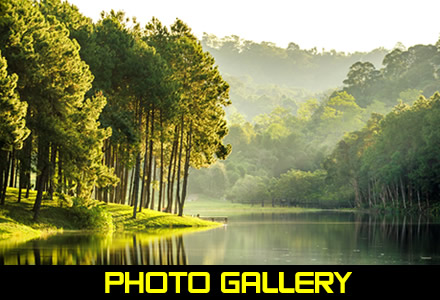Culture
The Amansie District is made up of people with a homogeneous culture. Majority of the people are Akans with Ashanti origin and they hold strong beliefs in Ashanti tradition and customs. The people have diverse cultures which accounts for their values and practices. They have strong beliefs in certain taboos, for instance, in “Ampomanka” stream, the mud fish from it is not eaten else a bad omen will befall the person. Farming activities are forbidden on certain days; such days are called “Dabone” (bad days).
Traditional Set Up
Traditionally, the communities are ruled by local chiefs (Adikrofo?) supported by their elders including family heads. Queen Mothers also play a major role in decision making in the community, in fact, they are the king makers. All the chiefs of the district owe allegiance to the Paramount Chiefs of Bekwai and Adakragya.
The traditional authorities collaborate with the Unit Committees to make decisions for the development of the various communities. Both parties jointly help in the implementation of projects through organization of communal labour and other support. The chiefs serve as the custodian of the stool lands within the communities and also ensure peace and order.
Religious Composition
In terms of religion, Christianity dominates; constituting 78.4% of the population followed by 15% of people without religious affiliation, Islam is 4.2% of the population whilst Traditional Religion takes 2.0% of the population and others 1.0%. This depicts a religiously diverse district as shown in the table below.
Ethnic Diversity
The natives who are Ashanti’s form the major ethnic group with the influx of other minor ethnic groups due to farming, “galamsey” activities and secular jobs.
Communal Spirit
Communal spirit is very high in most of the communities. The Chiefs and the community leaders usually mobilize the people for communal labour. The communities normally set aside a day for communal work. However, those in the district capital, Jacobu are generally low compared to other communities.
Attitude and Cultural Practices in the District
The people are generally friendly and sociable. They are sensitive to issues and policies of the government and fully participate in public fora and funerals, festivals and other social activities. The positive cultural practices are: puberty rites (bragoro), traditional marriage, funerals, naming ceremonies and installation of chiefs. Libation as a form of traditional prayer is poured during such important occasions to invoke the spirits of their ancestors.
Chieftaincy Disputes
Chieftaincy dispute is a thing of the past. There is cordial relationship between the chiefs in the district and the paramount chiefs of Bekwai and Adakragya. The District Security Committee (DISEC) is in place to monitor among other things the chieftaincy situation in the District.
Implications for Development - Culture
Generally, the positive cultural practices create conducive atmosphere for development and private sector participation. The fact that there is only one dominant ethnic group indicates oneness, understanding and peace among the people giving no room for ethnic conflict. The friendly and sociable attitudes of the people are positive attributes that give warm welcome to strangers. Taboo days give time for the people to undertake communal work.
The presence of religious institutions in the district helps in educating the people on morals and other aspects of controlling population. The religious institutions can also play important roles in the development of the district such as the provision of schools and other social amenities.
Festivals celebrated in the district help the new generation to learn about their culture, promote unity, help to solve major disputes and serve as an opportunity to contribute towards developmental activities.
Date Created : 11/16/2017 2:29:24 AM




